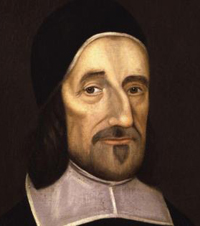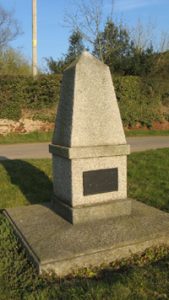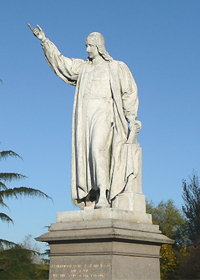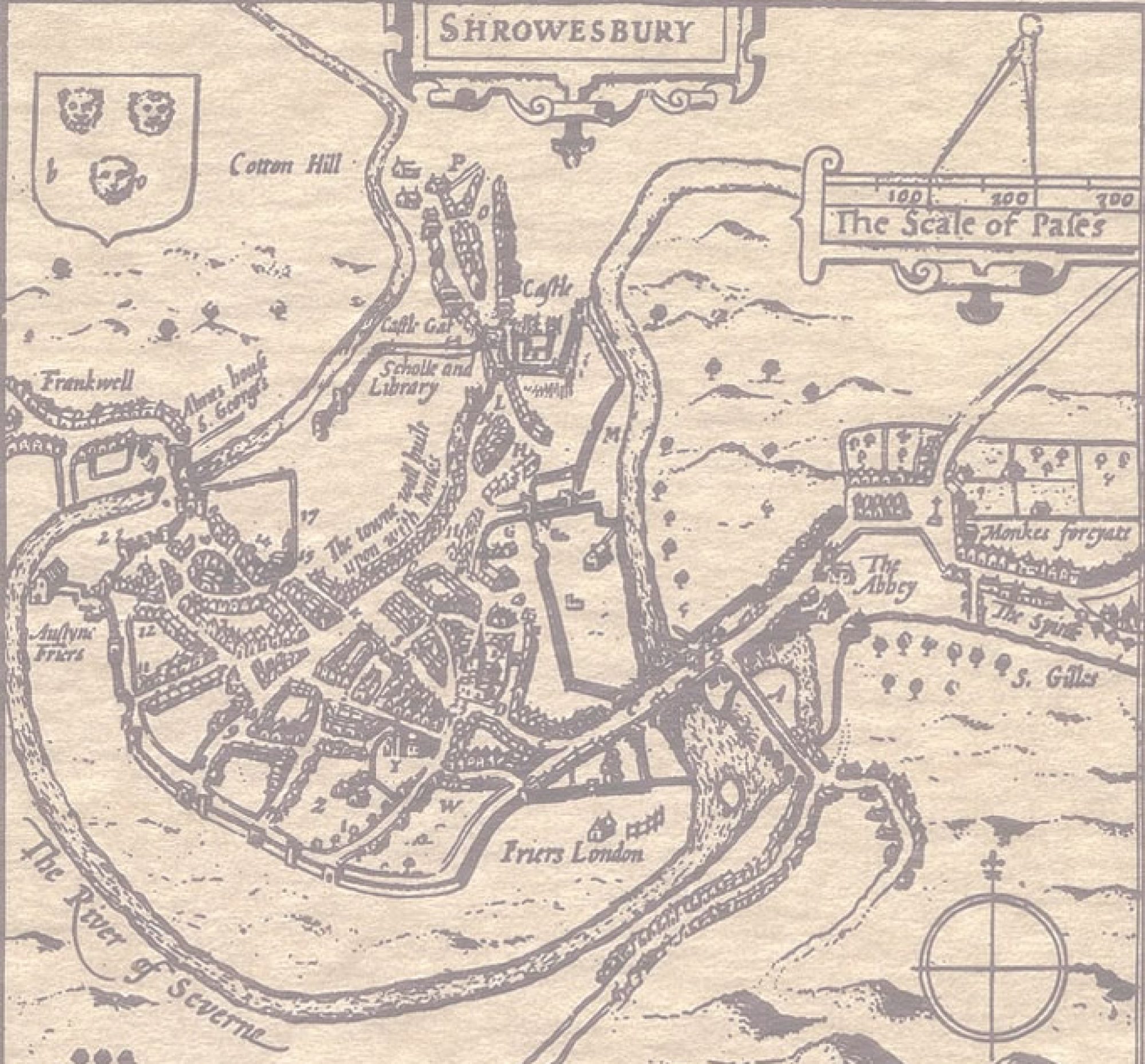
The word ‘Puritan’ now has an almost entirely negative flavour, conjuring up a picture of a person who is a hypocritical killjoy, concerned only with the minutiae of religion and behaviour. While there were undoubtedly some who resembled this stereotype, in reality the vast majority of Puritans were quite different, as we shall see in the life of one of the greatest of Puritans, Richard Baxter (1615-91), who was born and raised in Shropshire.
Puritanism began in the reign of Elizabeth I (1558-1603) as a movement to reform the Church of England [see footnote 1]. Many clergy held multiple livings, and were notorious for their ignorance and loose morals, and all the population was required by law to attend their Parish Church on a Sunday. Richard Baxter was born in the tiny village of Rowton near High Ercall, and he described what Sunday was like then. ‘In the village where I lived, the reader read the common prayer briefly; and the rest of the day…was spent in dancing under a maypole and a great tree where all the town did meet together… We could not read the Scripture in our family [because of] the great disturbance of the tabor and pipe, and noise in the street!’ [see footnote 2] Baxter’s father became a convinced Christian when Baxter was young, and the son goes on to describe the general attitude of others towards him and others they called ‘Puritan’. ‘When I heard them speak scornfully of others as Puritans…I was at first apt to believe all the lies and slanders wherewith they loaded them. But when I heard my own father so reproached…I perceived it was mere malice… Only for reading scripture when the rest were dancing on the Lord’s Day [Sunday], and for praying in his house, and for reproving drunkards and swearers, and for talking sometimes a few words of Scripture and the life to come, he was reviled commonly by the name of Puritan, Precisian and Hypocrite.’ [see footnote 3]
When he was nine, Richard Baxter moved to Eaton Constantine, near Wroxeter, where his father was a minor landowner. Richard’s formal education was limited, and he was mostly self-taught. When he was about 15 ‘it pleased God, of his wonderful mercy, to open my eyes with a clearer insight into the concerns and case of my own soul,’ he later recalled [footnote 4]. Gradually his spiritual understanding developed, and in his early 20’s he was ordained. For a short time he was the headmaster of a school in Dudley, and then assistant minister in Bridgnorth. This was despite having bouts of severe illness, which were to continue throughout his life. At this time the inhabitants of Kidderminster drew up a petition against their minister, who, they said, ‘was unlearned, preached but once a quarter [and so poorly] as exposed him to laughter…That he frequented ale-houses, and had sometimes been drunk’, among other things [footnote 5]. As a consequence Baxter was called to Kidderminster, but as the previous vicar refused to give up the living, Baxter was only ever a ‘lecturer’.

Baxter moved to Kidderminster in March 1640, and found there ‘an ignorant, rude and revelling people for the greater part…and yet among them a small company of converts, who were humble, godly, and of good conversations [lifestyle].’ [footnote 6] Not long after he began his ministry the Civil War broke out and Baxter was persuaded to become Chaplain to one of the Parliamentary regiments. Army life was disastrous for his health, however, and he became so ill that he nearly died. At this time he wrote The Saints’ Everlasting Rest; when, having been ‘sentenced to death by the physician, I began to contemplate more seriously on the everlasting rest, which I apprehended myself to be just on the borders of.’ [footnote 7]
He did recover, however, and resumed his ministry in Kidderminster, which continued for a further 15 years. He immediately began to see lives changed. He wrote, ‘My first and greatest success was upon the youth. [It was] a marvellous way of divine mercy when God had touched the hearts of young men and girls with a love of goodness, and delightful obedience to the truth. The parents and godfathers, who had grown old in an ignorant and worldly state, did fall into a liking and love of piety, induced by the love of their children, whom they perceived to be made by it much wiser and better, and more dutiful to them.’ [footnote 8] On Sundays so many people gathered that they had to build five extra galleries, to seat about 1,000 people (the population of the town was only about 3,000). ‘On the Lord’s Day there was no disorder to be seen in the streets, but you might hear a hundred families singing psalms and repeating sermons, as you passed through the streets… When I came there first there was about one family in a street that worshipped God…and when I left there were some streets where there was not past one family in the side of a street that did not so,’ he wrote. [footnote 9]
There was a meeting in the Vicarage every Thursday, where the people were able to discuss the sermon and voice their difficulties and learn to pray. ‘Some of [the poor men] were so able in prayer that very few ministers did match them, in order and fullness, and apt expressions and holy oratory, with fervency,’ he remembered. [footnote 10] Both the older and younger people also met together to pray each week. On two days each week Baxter and his assistant met to ‘catechise’ 14 families between them, spending an hour with each in questioning, conversation and exhortation. Such was Baxter’s popularity that few people declined to meet, and since Baxter himself had gone through a period of intense spiritual doubt, he was sympathetic to people’s struggles. In this way he and his colleagues were able to meet most of the 800 or so families in the parish individually each year. [footnote 11]
Baxter supported the restoration of Charles II to the throne in 1660, since he believed Charles’ promises to maintain religious liberty, and could see no other way to avoid anarchy. Baxter and the other Puritans soon realised the duplicity of the King, who swiftly restored the all-powerful Bishops, and in 1662 the Act of Uniformity was passed, which insisted, among other things, that all clergy were required to give ‘unfeigned assent and consent’ to everything in the Book of Common Prayer. [footnote 12] Baxter felt unable to sign the required undertaking, and so he and over 2,000 of the best ministers of the Church of England were summarily ejected from their livings. So Kidderminster had to make do with the same incompetent and immoral vicar who had refused to resign over 20 years before.
 The period from 1662 to 1688 was very hard for Puritans, whether Anglican, like Baxter, nonconformist, like John Bunyan, and especially for Quakers and Baptists. Baxter spent some time in prison, and mostly he wrote a stream of books, including his Autobiography. Finally, his health gave out, and the day before he died he told two friends, ‘I am almost well! I have pain…but I have peace.’ [footnote 13] In a way, the old type of Puritan died with him, but the same principles that energised them would resurface in the next century with the emergence of the Methodists.
The period from 1662 to 1688 was very hard for Puritans, whether Anglican, like Baxter, nonconformist, like John Bunyan, and especially for Quakers and Baptists. Baxter spent some time in prison, and mostly he wrote a stream of books, including his Autobiography. Finally, his health gave out, and the day before he died he told two friends, ‘I am almost well! I have pain…but I have peace.’ [footnote 13] In a way, the old type of Puritan died with him, but the same principles that energised them would resurface in the next century with the emergence of the Methodists.
Footnotes
[1] Hugh Martin, Puritanism and Richard Baxter, SCM, 1954, p.11ff
[2] Richard Baxter, Autobiography, abridged edition, Christian Focus, 1998, p.9
